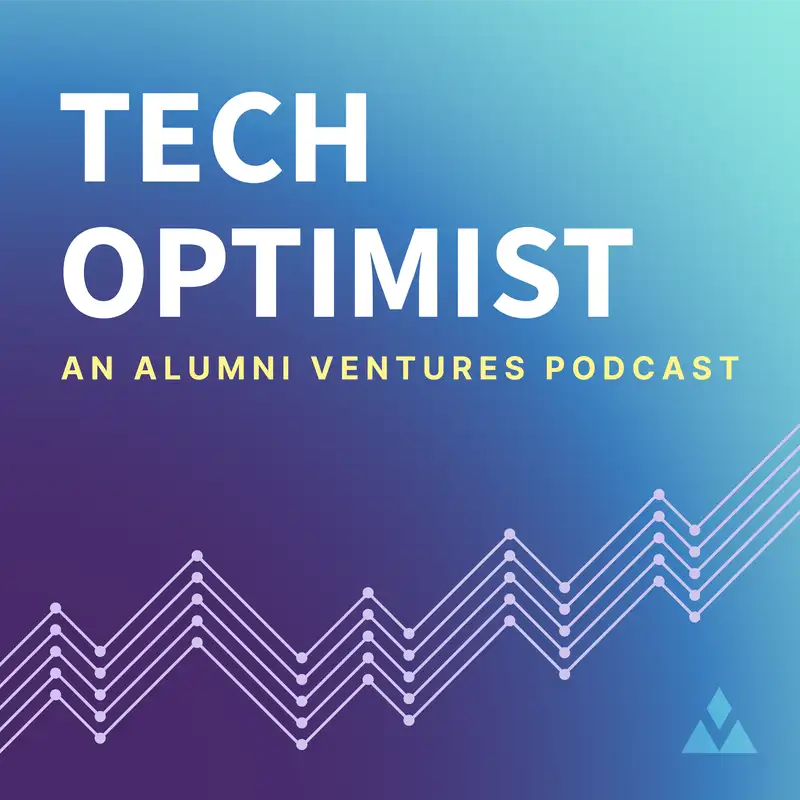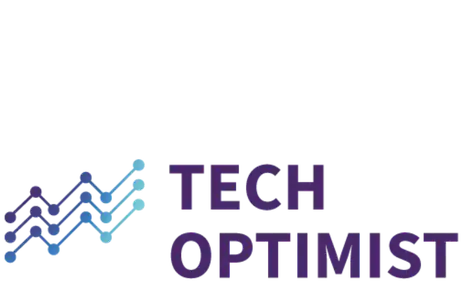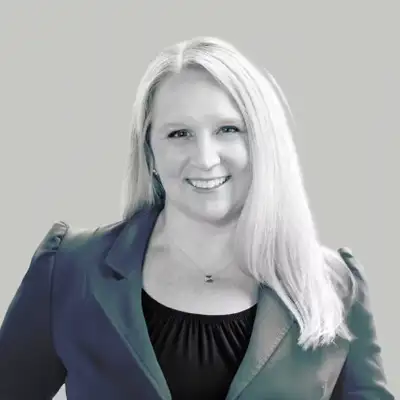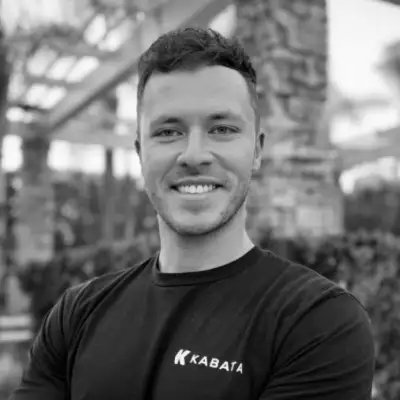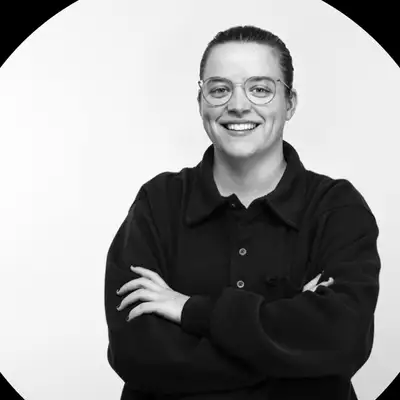#38 - Meet the Startup Building Smart AI-Powered Dumbbells
Samantha Herrick:
What if your dumbbells also acted as your personal trainer? No, this isn't out of some science fiction movie. And yes, I said dumbbells.
Kareem Aly:
A large part of it was just creating a product that would make strength training more enjoyable.
Meera Oak:
Yeah. It's honestly some of the coolest technology I've seen.
Kareem Aly:
COVID was the catalyst. Kind of came back to LA one weekend. I said, "Hey, what are you doing for your workouts?" He said, "Nothing." He said, "Kareem, what are you you doing for your workouts?" I said, "Nothing." And then the second pain point that they mentioned was, I don't have enough space in my small home or apartment for this equipment.
Samantha Herrick:
Hello everyone. Welcome back to this episode of the Tech Optimist: Meet the Startup. Today we meet Kabata. Some housekeeping to get out of the way, you know the drill. Today we're going to be taking to the episode with Meera Oak. She's a partner here at Alumni Ventures and her first time on the podcast. And our guest today is going to be Kareem Aly, co-founder and CEO of the startup, Kabata. And of course, myself. You'll hear from me here and there, Sam Herrick, who's going to take you through the episode. Let's do it.
In a world captivated by criticism, it's easy to overlook the groundbreaking technologies shaping our future, lets shine a light on innovators who are propelling us forward. As the most active venture capital firm in the US, we have an exceptional view of tech's real world impact. Join us as we explore, celebrate, and contribute to the stories of those creating tomorrow. Welcome to the Tech Optimist.
As a reminder, the Tech Optimist podcast is for the informational purposes only. It is not personalized advice and it's not an offer to buy or sell securities. For additional important details please see the text description accompanying this episode.
Meera Oak:
Hey everyone. Welcome to the Tech Optimist podcast. Today we're joined by Kareem Aly, the CEO and Co-founder of Kabata, a promising early stage company in the portfolio and one that I've actually had the pleasure of working with over the past year or so. So welcome Kareem. It's great to have you here.
Kareem Aly:
Yeah, thank you. Meera. Good to be on.
Meera Oak:
Yeah. Let's kick things off. To start, can you tell us a little bit about Kabata, what the company's doing?
Kareem Aly:
Yeah, so here at Kabata, we're building the next generation in strength training, starting with the world's first ever AI dumbbells. Kabata is the only dumbbell that counts reps for you, tracks all your workout metrics in real time, including time under tension, velocity or rep speed, form, symmetry, range of motion, and a ton of other metrics, and analyzes all that data to coach and progress you. Even automatically changing weight for you on every single move.
Samantha Herrick:
Again, like some of the other companies that have been featured on this podcast, Kabata really invested in a video, and a sort of video production project of their company, of their technology, and of their founding story. So here is that, and then we get a little bit more into depth about the company, how they work and all that other fun stuff. But here's this video really quick. It's about two minutes long.
Kareem Aly:
My name is Kareem Aly, co-founder and CEO of Kabata. I was thinking about fitness for a long time. Where is the industry going? How can we revolutionize it? The industry had to become more tech-forward, more data-driven, a lot of that stuff. I wanted something for strength training and I couldn't really find anything on the market. What if we just made dumbbells better? I brought it up to my now co-founder and CTO, Brian. He was a robotic systems engineer at iRobot for several years before Kabata, and I said, "Can you build this?" And he said, "Yeah." I said, "Do you want to build this?" He said, "Yeah." We were kind of off to the races from there.
We ended up working with some pretty amazing designers and engineers, some of the best designers in the world actually, to really build something that's under two by two square feet of space, which it is, combining 12 sets of dumbbells into one, which we wanted them to be a statement piece in the home. And so we wanted to create a very premium look, a very minimalist aesthetic, something that you could be proud of showing off, combining all the technology, all the sensors, the data, and that also you'd want to just use every day.
When you're working out with Kabata, there's a few different styles of workout you can do. You can do the self-guided GIFs, just kind of follow along with some videos. You can kind of run your own workouts, you can do classes, recorder classes. We're counting, we're tracking your velocity, we're tracking every metric you could think of. Reps, sets, time under tension, velocity, volume, power, acceleration, intensity, fatigue. We track all that. We're running analytics on all that. So we know exactly what weight you need for every move. We know exactly what move you should be doing every day. We know exactly what muscles you should be hitting for your goals. We're making fitness and strength training much more easy, fun, engaging, efficient, effective, personalized, than it's ever been. It's revolutionary. This is the next generation of fitness and it just hasn't been done before like this.
Samantha Herrick:
All right, y'all know the drill. We're going to take a break for a quick add and then we're going to hop right back in. Don't go anywhere.
Ludwig Schulze:
Hi. Just a brief interruption to introduce you to the HealthTech Fund from Alumni Ventures. Alumni Ventures is one of the most active and best performing VCs in the U.S., and we have raised over a billion dollars from more than 10,000 individual investors. With our HealthTech fund, you'll have the opportunity to invest in a portfolio of around 20 HealthTech startups. From transformative healthcare services to groundbreaking diagnostics, our founders are paving the for a healthier future. To learn more, visit us at av.vc/funds/healthtech.
Meera Oak:
Yeah it's honestly, some of the coolest technology I've seen, and I think one of the things that I was first struck by when we first met was a bit of your founding story, and so I think our audience would love to hear how Kabata came to be and how you met Brian, your co-founder, and give us the origin story.
Kareem Aly:
Yeah, yeah. So Los Angeles, born and raised, I actually met Brian, my co-founder and CTO, when we were nine years old in elementary school here in Los Angeles. Kabata has a ton of meanings across different languages, across growth, family, community, etc. But it also means childhood friend in Tagalog, the Filipino language. We were good friends over and I played a bunch of sports together, took all the same classes, definitely didn't think over two decades later we'd start a company together, but in retrospect, it probably makes sense. Our families were also always close. And then I went to UCLA for undergrad where his dad was actually a professor, so I'd even say hi to his dad after class. Kind of went separate ways after undergrad. I went to the Bay Area for six years working in investment banking and venture capital. It's how I serendipitously found a tech.
Brian stayed in LA working at iRobot for six years, basically as a robotics engineer, building the Roomba smart vacuums and the robotic lawnmowers. And the whole time that all that was happening, I was just thinking about fitness. COVID was the catalyst, kind of came back to LA one weekend. I said, "Hey, what are you doing for your workouts?" He said, "Nothing." He said, "Kareem, what are doing for your workouts?" I said, "Nothing." I was thinking about strength training. I brought up dumbbells for a variety of reasons and we're kind off to the races from there.
Meera Oak:
Yeah, super interesting. And you highlighted the COVID pandemic, which I think, if I think back, the whole at home fitness, connected fitness movement, really had a renaissance movement during that pandemic. So many of my friends and family were searching for an outlet to stay active while also practicing their social distancing. And I think since then, like many things, we've started to employ this hybrid approach of sorts. So I'm really curious to hear your thoughts on why you felt it was important to build in connected fitness and why dumbbells in particular.
Kareem Aly:
Yeah, good question. So my dad is a two-time national champion in field hockey and rowing. So he got us into all that stuff super early on, health, fitness, wellness, etc. I'm also a NASM certified personal trainer on the side. I've been strength training for the last 18 years. I love it. I feel and reap all the benefits of it, and I think most people don't love it as much as I do. And so a large part of it was just creating a product that would make strength training more enjoyable, especially with all those scientifically proven benefits that are coming out across social media with doctors, scientists, fitness professionals, kind of touting all of that now. And so when COVID hit, that was really the catalyst. I didn't want a bike, I didn't want a rower, I didn't want a mirror. Those are great products, but I really just was looking for strength training.
It felt like a secular trend as well. It felt like all my friends were trying to get into it. It seemed to be the number one goal in a lot of studies we were looking at. Yet when we looked at the category, there was no innovation. It was really just the dumb "adjustable dumbbells" which were basically all sold out, Bowflex, NordicTrack, PowerBlock, all good companies, but also all founded in basically the seventies, eighties, and nineties with very minimal tech, no app, no analytics, no coaching. And then on the other end of the spectrum was Tonal, which is also a great product, but $4,000 upfront plus subscription. It can be prohibitively expensive for a lot of people.
And so we just started looking at dumbbells more and more. The more we looked into it, even on like Statista we started to see that dumbbells are actually the largest TAM of any fitness modality. You could argue that they're the most popular, most used, most familiar, and also arguably the most iconic piece of equipment today and historically. And so we thought, Hey, what if we bring some of Brian's robotics technology into here and make dumbbells better?
Meera Oak:
No, that's great. I was also really, when we were first chatting, struck by the fact that, again, some of these larger connected fitness platforms are great, but require quite a bit of real estate when it comes to how to incorporate it into your at-home life. And I know something I really appreciate about Kabata was just how versatile it could be. It could really be plugged into a small New York or SF apartment pretty easily. So yeah, I see all the benefits, of course.
Kareem Aly:
Exactly. Exactly. I mean, just to touch on that quickly too, that was actually one of the biggest pain points that we saw in our surveys. We ran surveys in the early days asking people a variety of questions across, what's the maximum weight you'd want per dumbbell? What's your biggest pain points in at-home fitness today, et cetera, et cetera. And on that ladder question, the biggest pain points for people were, I can't afford what's currently on the market. A lot of the products across bikes, rowers, mirrors, machines were several thousand dollars plus a subscription. And then the second pain point that they mentioned was, I don't have enough space in my small home or apartment for this equipment. And so that's where we felt Kabata at our price point under two by two square feet of space, combining 12 sets of dumbbells into one, with all the tech and features that we pack into this thing, basically as a personal trainer and coach at your fingertips, we felt that was pretty compelling.
Meera Oak:
Yeah, absolutely. And that's really great. I want to shift gears a little bit because I know you're coming off of a pretty big announcement, which is the company's seed fundraise, which we were thrilled to be a part of. Would love to share any of the specifics you feel comfortable and really what you're hoping to accomplish as part of this raise.
Kareem Aly:
Yeah, so we raised it early 2023 with Shawn Carolan at Menlo Ventures leading our round. It was a $5 million seed round. Shawn Carolan actually just made the Midas List again, about a couple weeks ago, which was timed almost perfectly with our announcement of the round, which we kind of delayed for about 18 months deliberately. But yeah, one of the top 100 investors, globally, early investor in Uber, Roku, Chime, Siri, Jump Bikes, just a plethora of really successful companies. So really just great conviction, strong conviction to have someone of his caliber believe in us. And it's crazy because even coming full circle with all this, I used to work in venture capital myself, and I always looked up to Shawn sort of as an outsider looking in, seeing his investment, seeing his success, and always wanting to work with him. And so it's pretty crazy now that he actually led our seed round and is at our board meetings.
Meera Oak:
Wow. Yeah, no, what a full circle moment. That's great. And yeah, as you think about the horizon a bit, can you paint us a picture of what you're marching towards as part of the round?
Kareem Aly:
Yeah. So with that capital, we've done a ton. We were at four people when the seed round was done. We're now up to 10. We've got just an amazing group of world-class folks on our team from Nike, Apple, Amazon, Meta, Whoop, Tonal, Peloton, Postmates, Stanford, UCLA, etc. Just a really strong team that can execute on this thing. We really want to build something big. A lot of that capital is going towards marketing now. We do have the first ever manufactured unit in my possession, so just starting to work with influencers, trainers, things like that as well, getting ready for our pre-order launch in a couple of weeks, and then we'll be shipping this fall. So also a lot of the capital just has to go to inventory and manufacturing and getting these units to the U.S.
Meera Oak:
Yeah, shout out to Kabata's social media presence. I feel like it's so incredible to see the product in so many people's hands, just the way in which, again, it highlights the versatility of the product. And so definitely give the Kabata handle a follow, because it's been a really fun to watch from afar.
Kareem Aly:
Yeah, I'll come in on that too. I'll come in on that too. It's crazy because we've been building this thing for three and a half years, and I think probably a lot of founders can resonate, but sometimes you're building this thing for months or years like we have, and you're like, man, I really hope people are actually going to enjoy this product. We've spent so much time on this. And I was taking the first manufactured unit to the East coast these last few weeks, and it was just astonishing the feedback that we'd get. People were literally saying, "This is the coolest fitness product I've ever tried. I've never seen dumbbells count my reps. I've never seen dumbbells correct my form." So that feedback was just super, super amazing to actually get in person, just with all the hard work that we really put into this.
Meera Oak:
Got it. Well, I mean, I feel like we've offered the biggest teaser on this podcast, but I think it's important that we highlight to our audience how can they get their hands on the insanely cool technology? What do they need to do?
Kareem Aly:
So for now, you can just go to kabatafitness.com and join our wait list. We did close the last pre-order a couple of weeks ago. So wait list is open again. If you join that, you'll get all the emails, all the updates straight from us and the team, and we will be launching a crowdfunding campaign and basically our final pre-order campaign, on July 23rd. So if you sign up for the email wait list on our website, you'll get all the updates for that. You'll see when it opens. That'll be the best kind of early bird price, and we'd love to get as many early backers and believers in here to the Kabata family.
Meera Oak:
Fantastic. Thank you so much for joining us, Kareem. This has been a real joy and really appreciate the time.
Kareem Aly:
Yeah, thanks so much Meera.
Samantha Herrick:
Now. Before we wrap this episode up and throw in one more ad and then the outro, I want to give the kabata sort of technology a little bit more time here. So I am on just their Kabatafitness.com under their technology page, and they have a lot of interesting topics and interesting touch points that they want known for their dumbbells and for their technology. So if you were curious, if you're a fitness nut like myself or anything else, here are some statistics and specs on the technology itself to see if it would suit you best in your home or if you want to join their wait list and support this awesome company.
So there are 12 sets of dumbbells in one set of kabata. So it's five to sixty pounds. Kabata is best for people who want to tone muscles and burn fat, begin their fitness journey, improve cardiovascular health and save space and workout on the go. That is also a big thing, is space-saving and working out on the go. Also with their app and their live coaching that Kareem was talking about, that provides advanced metrics, automatic rep counting, real-time form correction, AI-powered coaching, automatic weight change, and velocity-based training. Now it's kind of like, it's hard for me to quantify what all of that means, but it's some pretty cool technology. So I definitely recommend a shoot over to their website and check all this out for yourself. I've got some visuals up right now for you, just if you're watching this podcast, but if not, definitely go check out their website and go check out Kareem and Brian's work.
But yeah, we've got one more ad and then we're going to wrap up this episode. So thanks so much for listening to this episode of The Tech Optimist: Meet the Startup, and we'll see you next time.
Speaker 5:
Do you have a venture capital portfolio of cutting edge startups? Without one, you could be missing out on enormous value creation and a more diversified personal portfolio. Alumni Ventures, ranked a top-twenty VC firm by CB Insights is the leading VC firm for individual investors. Believe in investing in innovation? Visit av.vc/foundation to get started.
Samantha Herrick:
Thanks again for tuning into the Tech Optimist. If you enjoyed this episode, we'd really appreciate it if you'd give us a rating on whichever podcast app you're using and remember to subscribe to keep up with each episode. The Tech Optimist welcomes any questions, comments, or segment suggestions. So please email us at info@techoptimist.vc with any of those, and be sure to visit our website at av.vc. As always, keep building.
